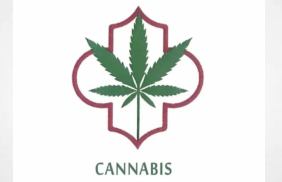This is how Manzuri saw 2021 through the prism of California & Cannabis.
What a year! Though it wasn’t quite THE year we may have hoped for in cannabis news (hello, federal legalization?!), it’s what we got. Throughout the nation, we’ve had a wave of legislation which greatly impacted the commercial cannabis industry. This year our office wrote about the various legislative and policy changes – We break down 2021’s highlights below.
1. AB 45: California hemp legalization
As we’ve previously discussed (here and here), this bill legalized CBD in food, beverages, cosmetics, dietary supplements and pet food in California. It also amends the definition of Industrial Hemp to include cannabis plants and ANY part of that plant with THC concentration of no more than 0.3%.
AB 45 also sets its sights on the future. DCC needs to present a report to the Governor by July 1, 2022 that outlines the steps necessary for the incorporation of hemp products (and cannabis products with hemp cannabinoids) into the cannabis supply chain.
2. AB 141 – Meet the Department of Cannabis Control
The 2021-2022 State Budget Bill consolidated the three cannabis agencies – the Bureau of Cannabis Control, CalCannabis, and Manufactured Cannabis Safety Branch – into the DCC to try and streamline application processes. Notably, in the implementing regulations, the DCC changed the definitions of “Owner” and “Financial Interest Holder” that caused some controversy and called into question the entire emergency rulemaking process.
3. Federal Cannabis Reform (or not)
Both sides of the aisle support cannabis reform, with multiple federal bills seeking to address everything from banking to social justice. But as 2021 draws to a close, things look bleak regarding federal legalization. Cannabis banking was originally included in the federal defense spending bill but stripped from it at the last moment. With federal leaders butting heads on cannabis reform strategies, progress doesn’t seem likely. The industry must continue grassroots efforts to legalize state-by-state until the feds can play nice or are pressured into legalizing nationally.
4. Expiration of Provisional Licenses (& Stipulations on Renewals)
2022 brings four significant deadlines for California cannabis license applicants.
- March 31, 2022: deadline for the submission of applications to be considered for provisional licenses, with the exception of certain cultivation license applicants and local equity applicants.
- June 30, 2022:
- Last day for the DCC to issue provisional licenses for all license types except certain local equity applicant; and,
- Deadline for certain cultivators to submit an application and be considered for a provisional license (does not apply to local equity applicants).
- July 1, 2022: brings new specific requirements for provisional license renewals.
- September 30, 2022: last day the DCC will issue provisional licenses for smaller cultivation sites (does not apply to local equity applicants).
The California cannabis market is headed for a real change. Our prediction – these deadlines will cause licensees to scramble to get in applications and/or secure licenses up for sale. Ultimately these next two years will be THE defining moment for the California market going forward, especially with the sunset of provisional licenses come January 1, 2026.
5. Cannabis: A California Essential.
Despite our greatest wishes, the pandemic isn’t ending anytime soon. While it caused immeasurable challenges and suffering around the world, it also led to cannabis businesses being deemed “essential” by Newsom’s administration. With a renewed focus on equity, justice reform, and ensuring Californians have access to healthcare – all issues intertwined with the cannabis industry – we don’t expect cannabis businesses to come off the essential biz list even after the public health emergency is in our rearview mirror.
6. Trade Samples
California cannabis businesses can now legally offer trade samples – free of charge. New DCC regulations allow cultivators, manufacturers, Type 11 distributors, and microbusinesses to provide a limited number of samples per month to other businesses authorized to engage in the previously mentioned activities. This could be a huge opportunity for the industry to boost sales, lower administrative burden, and gain trust from authorities, especially those in banned counties, assuming all goes well and the state does not see an increase in diverted products.
7. LA Highlights
This year Los Angeles’s Department of Cannabis Regulation (DCR) implemented several important regulatory changes which impacted all DCR licenses. It also faced immense community pressure to improve; DCR is notorious for its slow application process, hindering applicants with months of fees paid for an unoperational business.
In November, LA City Council approved a Motion making changes to DCR’s application processes and instructed the DCR to modify its administrative protocols. With these licensing revisions, there is hope for expediting the licensing process for all, particularly for equity applicants.
8. Market to Watch: New York
In September, New York State legalized adult use of cannabis. New Yorkers over 21 can now legally possess up to three ounces of cannabis or 24 grams of concentrated cannabis for recreational use, and store up to five pounds of cannabis in their homes. Smoking is now also allowed wherever tobacco is legal.
Once regulations are implemented, brick-and-mortar retail licenses will be available, allowing cities to opt-out and prioritizing verified Social Equity Applicants. Most importantly, certain cannabis convictions will qualify for expungement.
9. Mergers and Acquisitions
Mergers and acquisitions remained a constant in the cannabis industry this year, particularly outside of the state of California. However, given that the state has now placed a deadline on the end of provisional licenses, this tenor may change. Due to this impending limited availability, the price of a California license will increase exponentially in value. This may cause some licensees to sell the license and cash out and be acquired, whilst we may see some players merge with competitors to make an even stronger company, together.
10. Emergency Regulations
The DCC is ending 2021 with a bang, releasing another set of emergency regulations to address SB 166, a new law requiring the DCC to implement a program to provide state fee waivers for qualifying equity applicants and licensees. In addition to meeting the state’s equity definition, businesses will have to prove – or for new licensees, anticipate – that their gross annual revenues equal less $1.5million to be granted a waiver. The DCC will begin accepting applications for fee waiver requests on January 1, 2022. Emergency regulations on fee deferrals are expected later next year. After that, we predict DCC will shift to the regular rulemaking process and make things less haphazard and complicated for stakeholders.
Disclaimer: This article has been prepared and published for informational purposes only and is not offered, nor should be construed, as legal advice.
















